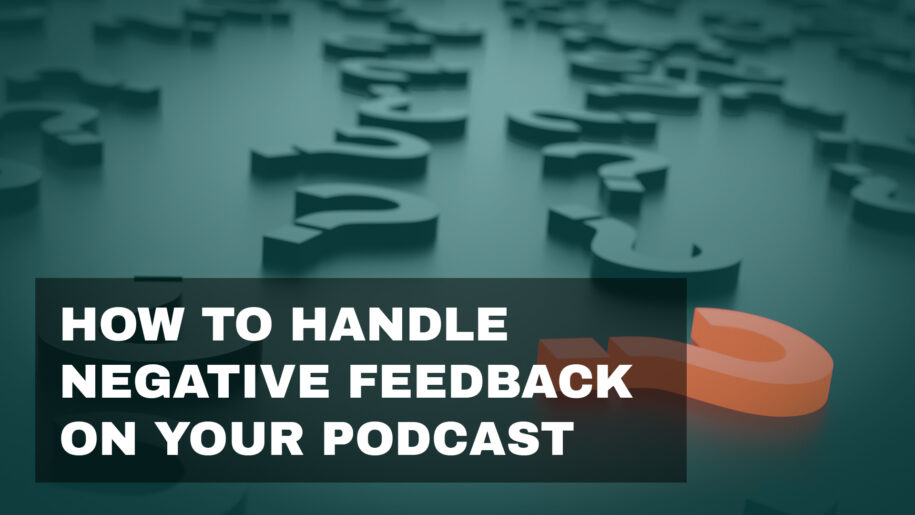Creating a podcast is a labor of love, but it also opens you up to public feedback. While positive feedback can be motivating, negative feedback can be challenging to handle. However, how you respond to criticism can significantly impact your podcast’s growth and your relationship with your audience. In this post, we’ll explore effective strategies for handling negative feedback on your podcast, turning it into an opportunity for improvement and growth.
Understanding the Value of Negative Feedback
Negative feedback, though sometimes hard to swallow, can be incredibly valuable. It provides insights into your audience’s perceptions, highlights areas for improvement, and helps you grow as a content creator. By approaching criticism constructively, you can enhance your podcast and build a more engaged and loyal listener base.
Strategies for Handling Negative Feedback
Stay Calm and Objective
When you receive negative feedback, take a moment to breathe and approach it with a calm and objective mindset. Responding emotionally can escalate the situation and damage your credibility. Remaining calm helps you assess the feedback more rationally.
Listen and Analyze
Carefully read or listen to the feedback to understand the underlying concerns or suggestions. Analyzing feedback helps you identify valid points and distinguish between constructive criticism and baseless negativity.
Respond Professionally
Craft a polite and professional response, acknowledging the feedback and expressing your willingness to improve. Professional responses demonstrate that you value your listeners’ opinions and are committed to delivering quality content.
Thank the Reviewer
Thank the person for their feedback, even if it’s negative. Showing gratitude fosters a positive relationship with your audience and encourages open communication.
Take Action and Improve
Implement changes based on the feedback if it highlights genuine areas for improvement. Acting on constructive criticism shows that you are responsive and dedicated to enhancing your podcast, which can lead to better content and increased listener satisfaction.
Engage with Your Audience
Engage with your audience by asking for feedback regularly and creating open channels of communication. Proactively seeking feedback helps you address issues before they become significant and shows that you value your listeners’ input.
Filter Out Unconstructive Criticism
Not all negative feedback is constructive. Learn to differentiate between useful criticism and baseless negativity. Focusing on constructive feedback helps you improve, while ignoring trolls and unhelpful comments protects your mental well-being.
Real-Life Examples and Lessons
To better understand these strategies, let’s look at some real-life examples of podcasters who have effectively handled negative feedback:
- Example 1: A podcaster received criticism about the audio quality of their episodes. They thanked the listener for the feedback, invested in better recording equipment, and saw a noticeable increase in positive reviews and listener retention.
- Example 2: Another podcaster faced negative comments about their content being too lengthy. They responded professionally, acknowledged the feedback, and experimented with shorter episodes. This change led to higher engagement and more downloads.
Handling negative feedback on your podcast is an essential skill for any content creator. By staying calm, analyzing the feedback, responding professionally, and taking action to improve, you can turn criticism into an opportunity for growth. Remember, even the most successful podcasters face negative feedback; what sets them apart is their ability to use it constructively. Embrace feedback, learn from it, and continue to create content that resonates with your audience.
By optimizing this approach, you can improve your podcast’s quality, grow your listener base, and build stronger connections with your audience. Negative feedback doesn’t have to be a setback; it can be a stepping stone to greater success.


